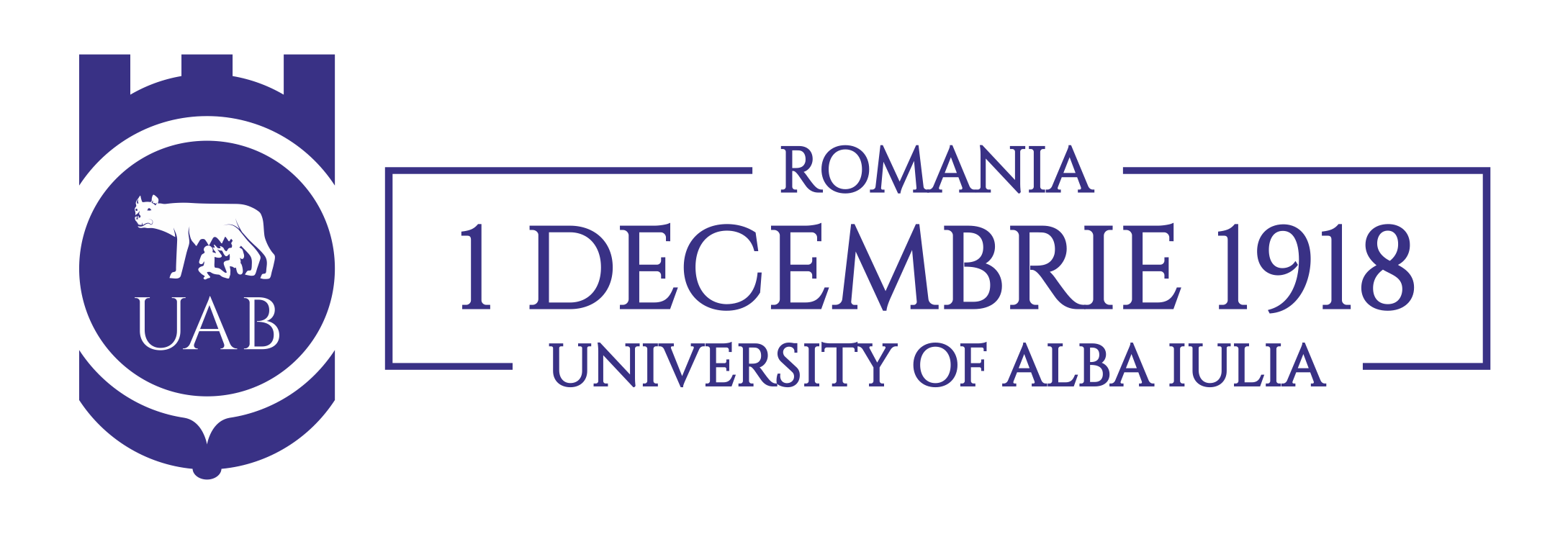
Accredited Program, duration of studies- 3 years / 180 credits
The curriculum within the Faculty of Exact Sciences and Engineering provides graduates with the ability to specify, design and develop programs, to operate, use and maintain program products. An important emphasis is placed on the ability of graduates to operate, use, and manage computer systems, computer networks, database management systems. Through the pedagogical module, graduates are offered training skills in information technology at the level of primary and secondary education. Graduates of undergraduate courses have the opportunity to learn the basic techniques required for self-improvement in Advanced Programming and Databases, offered by master studies.
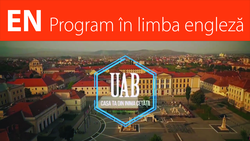
Accredited Program, duration of studies- 3 years / 180 credits
The Bachelor's Degree program in Computer Science has the main mission to develop high-level skills in the field of Computer Science, aiming to train the necessary specialists in the labor market. According to a recent study by the recruitment company Brainspotting, in Romania about 110,000 people are employed in the IT field and annually the number of graduates in this field is about 12,000 graduates. The Romanian universities provide a number of approx. 8500 computer scientists, which does not sufficiently cover the labor market needs. Thus, the proposal of some degree studies in the field of Informatics represents a consequence of the requests from the economic environment, respectively, an adaptation of the university environment to the demands on the labor market.
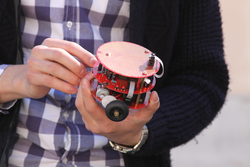
Accredited Program, duration of studies- 4 years / 240 credits
The specialization offers students a general training in the field of electronics, but also in-depth knowledge and practical skills in fields such as industrial electronics, medical electronics, and telecommunications. The training strategy of the graduates of the Applied Electronics specialization aims at the fast and efficient integration in the specific fields on the labor market. In this sense, the competencies acquired by graduates, the structure of the curriculum and the content of the syllabi were established in accordance with the requirements of employers, with the provisions of the National Qualifications Framework in higher education, taking into account the general specifics of labor market insertion and its regional specificity. At the same time, the skills of graduates are harmonized with the needs of mobility in the economic, regional, and European market. Through its structure, the curriculum of the specialization ensures the graduates to continue their studies through a master's degree program, but also the access to the master's programs of the related fields.
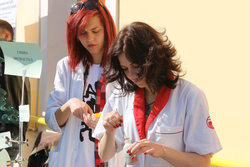
Accredited Program, duration of studies- 4 years / 240 credits
The specialization prepares engineers in accordance with the principle of direct participation-involvement in choosing the training path, through a flexible learning process, ensuring real chances in competition on the free market workforce. In the field of professional training, the accumulation of applied knowledge is very well highlighted. All disciplines are designed to meet the training requirements of current European Union standards. The Environmental Engineering degree program has access, depending on the needs, to all the spaces of the University. In particular, this program has two modernized buildings (Buildings C and D), lecture and seminar rooms, offices, reading room, gym. In addition, students benefit from laboratories equipped with state-of-the-art equipment in which they acquire the practical skills necessary for integration into the labor market. Students passionate about certain study topics can carry out individual research activities in laboratories, can work in the Student Scientific Circle of Environmental Engineering and can present their work in the Student Scientific Sessions organized by the University.
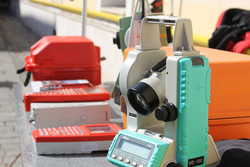
Accredited Program, duration of studies- 4 years / 240 credits
The development of education in the field of land measurements has been imposed both nationally and locally, due to economic and scientific needs, taking into account that the number of specialists in the field of land measurements is below the requirements of this field of activity. The structural changes that occurred in our country, after 1989, through the transition to a market economy and the development of private property, produced fundamental changes in the field of surveying, both in terms of real estate records and their graphic representations. The updating and modernization of the surveying, in order to make it multifunctional, requires a large number of specialists, with a distribution as uniform as possible at national level. Completing the necessary specialists in the field of Surveying is an absolute priority for the Romanian economy and society, given the need to introduce and maintain the General Cadastre throughout Romania and register all buildings in the Land Book.
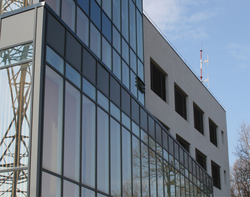
Accredited Program, duration of studies- 4 years / 240 credits
The mission of the study program is to train construction engineers, ready to work both in public administration and in accredited design and execution companies in the field of civil engineering. They will have to be able to work in mixed teams with architects, planners, surveyors, economists, and lawyers in solving urban and regional development problems and implementing infrastructure projects in this field. Based on the competencies obtained after completing the degree program, graduates will be able to enter the labor market, ensuring the link between public and private partnership, by activating in all stages of a project, from substantiation to operation and monitoring the implemented activities.
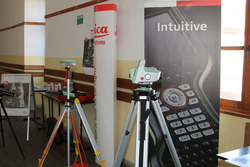
Duration of studies
4 semesters
Brief presentation of the program
The mission of the study program, in the direction of training and improvement of specialists in this field, has as main objective the reduction and elimination of the imbalance in terms of approaches and technologies for cadastre preparation, restoration and regulation land ownership, stopping the process of degradation of land areas, the use of modern technologies for drawing up and updating cadastral records, the possibility of applying modern cadastral methods for agricultural, forestry, hydrological, roads, archaeology, etc., given that worldwide the issue of cadastral records is much more advanced. The organization of the training process at master's level is based on in-depth knowledge and obtaining additional skills in the field of Geodetic Engineering and the official certification required for employment in the labor market.
The study program aims to achieve the following general objectives:
- ensuring quality psychological and pedagogical, didactic and practical training, in accordance with current and future directions in the field of Engineering Sciences, curriculum theory and practice, information and communication technology, design and evaluation in conditions of quality and efficiency of the educational process;
- achieving a formative, modern education, focused on students and pragmatically oriented towards the real needs of the Romanian school, in the context of European integration;
- organizing study programs in the field of continuous training and improvement of technical staff in the field, according to the requirements of a modern and efficient education;
- connecting education with scientific research, involving students in the development of studies on current topics in the field, and other sciences involved in the educational process;
- the realization of research programs in the Engineering Sciences oriented towards the fundamental themes and towards the current priorities of the development of the processes and systems and of the European integration of the training programs.
The relevance of the Master's Program is ensured by the direct connection with the current and perspective requirements of the activity in the field of Geodetic Engineering, by updated theoretical and methodological approaches, with emphasis on scientific research and project management.
The following aspects are pursued as specific objectives:
- to operate with the concepts and methodology in the field of geodetic engineering;
- to develop skills of relationship and communication with the social and professional environment;
- to carry out computer operating activities and access to computer communication networks;
- to analyze critically, qualitatively and quantitatively, the information from different sources and to elaborate solid arguments that can be the basis of the decisions;
- to design, implement and operate geographic information systems and to collect, store, analyze and visualize data within these systems;
- to carry out specific cadastral works;
- to prepare scientific reports and articles using an appropriate technical-scientific language in a correct and clear form;
- to conceive and lead processes specific to the chosen technical-scientific field.
The following general competencies will be ensured:
- the ability to learn, synthesize and deepened the knowledge;
- ability to operate with geodetic engineering concepts and methodology;
- abilities and skills of relationship and communication with the social and professional environment;
- computer skills and access to computer communications networks;
- language proficiency in at least one language with a wide international circulation.
The professional competencies that will be ensured through the study program are represented by:
- scientific knowledge, understanding of the basic concepts, theories and methods of the field and of the area of specialization;
- coordination, within local and central administrations, of projects and programs aimed at property management;
- working in multidisciplinary teams to identify, analyze and propose solutions to solve dysfunctions at national, regional, county and local level;
- management and monitoring of the execution of engineering works;
- application and ensuring the legislative framework in the geodetic activity;
- computer aided design and use of dedicated software.
The transversal competencies provided are transposed by:
- efficient solution of problem situations with medium degree of difficulty, respecting the principles and norms of professional ethics and promoting a responsible attitude towards the field of geodetic engineering;
- defining and respecting the team's competencies, distributing responsibilities to team members and solidarity in assuming responsibilities;
- self-assessment of the need for professional training, career development, development of acquired skills and adaptation to the requirements of a dynamic society;
- efficient use of information resources and of assisted communication and professional training resources (portals, Internet, specialized software applications, databases, online courses, etc.) both in Romanian and in an international language.
Qualifications and professions upon graduation (according to the Classification of Occupations in Romania)
Geodetic Engineer Designer - 216506 Geomatician - 216509 ISCO 08 Correspondence - 216 - Architects, planners, surveyors, and designers.
The main disciplines studied
Geomatics, Digital Cadastre and Land Registry, Geomorphology and risk elements in land management, Cadastre of urban areas, Rules and regulations in real estate management, GIS in real estate cadastre, Cadastral evidence of natural and anthropic heritage, Special topographic works, Urban databases, Urban and regional development policies and strategies, Real estate management, Territorial infrastructure management, Construction monitoring, Geomatics, Digital cadastre and Land book, Geomorphology and risk elements in land management, Urban cadastre, Norms and guidelines in real estate management, GIS in cadastre Real Estate, Cadastral Records of Natural and Anthropic Heritage, Special Topographic Works, Urban Databases, Urban and Regional Development Policies and Strategies, Real Estate Management, Territorial Infrastructure Management, Construction Monitoring.
Aspects regarding professional practice
During the two years, the master students will do internship in some companies in Romania or abroad: Alba County Council; Office of Cadastre and Real Estate Advertising Alba; Alba Iulia City Hall; SC Apa C.T.T.A. Alba; Maximum Cadastre Office; SC Larry & Cory Vermessungen S.R.L .; A.P.I.A.; DN Agrar Group; S.C. Florea Grup S.R.L.; S.C. TOP-CAD S.R.L.; S.C. Apulum GEO-GIS S.R.L.; S.C. Tobimar Construct S.R.L.; S.C. Elis Pavaje S.R.L.; Lancranjan Franchini Gheorghe Design Office; SC Tobimar Construct S.R.L.
Possibilities for further studies (master's degree, doctorate)
Graduates of the master's degree have the opportunity to continue their studies, attending the courses of one of the existing doctoral schools in Romania.
Employment opportunities in the labor market
Graduates have the opportunity to be employed as specialists in the field of geodesy / topography / cadastre in public and private sector institutions and companies as well as in other institutions, organizations and companies, public and private, whose activity involves the use of geographical data and and / or spatial information.
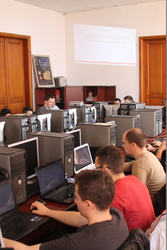
Duration of studies
4 semesters
Brief presentation of the program
1.1. Knowledge, understanding and use of the language specific to the field of study for the purpose of adequate communication:
1.1.1. Requirements for knowledge, understanding and use of basic concepts, approaches, theories, models and methods: • In-`depth knowledge of theoretical fundamentals in computer science • Knowledge of the principles of advanced computer programming • Knowledge of programming paradigms and their application in concrete problems • Knowledge of computer concepts used in analysis and design of software applications • Knowledge of the principles related to information systems and advanced software technologies • Knowledge of the stages of design, implementation, testing and maintenance of complex information systems • Knowledge of advanced concepts of database management systems • Knowledge of advanced concepts software engineering • Knowledge of advanced concepts on data security, testing and validation of software products. • Knowledge of advanced computer networking concepts • Application of mathematical knowledge in software design • Understanding of teamwork principles and specific software technologies for the development of complex information systems of software products • Communication skills in at least one foreign language • Ability to approach the scientific field of the specialty - the ability to analyze, synthesize and interpret a set of specialized information; • Ability to work in a team; the ability to collaborate with specialists in other fields; • Ability to continue studies through doctoral studies. • Knowledge and efficient use of advanced information technologies • Knowledge of programming methods and techniques using virtual environments and specific libraries for processing virtual components. • Knowledge, understanding and use of advanced concepts, models, and methods in the field of Informatics.
1.2. Ability to explain and interpret processes, phenomena, states, theories/ideas and trends confined to the field of study
1.2.1. Requirements for explaining and interpreting advanced concepts, approaches, theories, models and methods in the form of reasoned reasoning • Collecting, analyzing and interpreting data and information from a quantitative and qualitative point of view, from various alternative sources, from real professional contexts and from literature in the field, for formulating arguments, decisions and concrete approaches • Knowledge and correct interpretation of specific phenomena of the computerization process • Ability to identify, collect and process information on activities, phenomena and processes specific to computerization • Ability to explain and interpretation of phenomena, processes and states specific to computer systems.
Developer Analyst - Developer Computer Specialist, Computer Systems Designer, Computer Network Administrator, Database Administrator, Computer Programmer, Software System Engineer, Computer Project Manager, Computer Aided Design Specialist, Computer Systems Security Procedures and Tools Network Administrator VOIP, Telephony Consultant in Informatics, Professor Major Group 2 - Specialists with Intellectual and Scientific Occupations, Major Subgroup 21 - Physicists, Mathematicians and Engineers.
The main disciplines studied
The graduate's ability to practice, at a high competence level, activities specific to the field of study, through the use of knowledge, experience in the profession, psychological qualities and personality traits involved in performing the tasks assigned.
Execution skills manifested by:
- ability to understand the content of the task
- concretization and customization of what is abstract and general
- training and experience
Organizational skills involve:
- accuracy in thinking
- order and discipline
- promptness, consistency, and firmness in the exercise of the profession
3.1.3. Other skills specific to the field of specialization:
- negotiation, contracting and conducting business, according to the mandates entrusted
- the ability to work in a team and take risks
- the ability to use the knowledge gained in new, unpredictable and complex situations
- initiative in solving practical problems
- organizational skills
- creativity
- innovative spirit and inventiveness.
- courage in approaching topics that exceed the current level of knowledge in computer science.
Aspects regarding professional practice
Ability to create models and develop theories based on one's own studies. • Valuing one's own ideas and concepts at the level of practical and demonstrative studies. Ability to synthesize and interpret a set of information, solve basic problems, and evaluate possible conclusions • Ability to synthesize information on the selection of important aspects for the development of computer studies. • The ability to synthesize information by summarizing it in articles published in the scientific press. Independent analysis of some problems and the ability to communicate and demonstrate the chosen solutions • The ability to support one's own projects through practical demonstrations and concrete solutions. Initiative in analysis and problem solving • Ability to identify and structure information • Ability to use interdisciplinary theories and specific models.
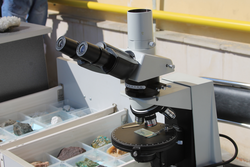
Duration of studies
4 semesters
Short presentation of the program
The Master's program has been proposed and structured on the premise that in the context of the sustainable development of modern society, environmental education has become a priority and is a complex activity. The organization of the training process at master's level is based on in-depth knowledge and obtaining additional skills in the field of Environmental Engineering, preparing graduates from the undergraduate cycle. The Master's program aims to complete the training of graduates by creating realistic guidelines for the application and interpretation of technical, technological, and economic information obtained in undergraduate studies in environmental engineering, specializations within the faculty, and related specializations for graduates of other faculties. The purpose of this master's degree program is to train professional skills for a wide range of demands that environmental institutions, research institutions in the field, the education and the economic environment demand of future specialists.
Specifically, the mission of the study program has the following objectives: a) ensuring the training of specialists with superior skills, in accordance with current and future directions in environmental engineering, ensuring the high level of training of students, in accordance with national and international standards, endowing them with the knowledge and skills necessary for active and efficient integration in the profession and in social life, by achieving a formative education, modern, student-centered and pragmatically oriented to the real needs of the Romanian school and labor market requirements. b) the continuous improvement and modernization of the educational process, by adapting the curricula, the analytical programs and the teaching methodology to the changing requirements of the Romanian society and taking into account the exigencies of the profile education in the European Union; c) expanding the relations of interuniversity cooperation with higher education and research institutions in the country and abroad and active integration in European academic cooperation programs, perpetuating cooperation with education and culture institutions in Alba Iulia and the area, by participating masters in joint teaching programs , ERASMUS PLUS exchanges, etc. d) ensuring the development and improvement of the technical staff in the field according to the needs of the labor market; e) connecting education with scientific research, training master students in the development of projects and studies on current topics in the field, conducting research programs in the field of Engineering Sciences focused on fundamental topics and current priorities of developing processes and systems and European integration of training programs.
The curriculum of the master's program ensures general and transversal competencies that allow a high flexibility in choosing the post-graduate professional route. We mention: - Drawing up studies for environmental protection (environmental report, environmental impact report, environmental balance, location report, adequate assessment study, environmental audit and certification, case study expertise, feasibility studies, of impact, opportunity related to investment / development / modernization works - Collection, processing, analysis, validation and interpretation of environmental data, obtained by various methods and techniques (field observations, surveys, measurements of environmental parameters, statistical methods, mathematical modeling, GIS techniques, etc.) - Participation in the process of implementing environmental management systems in economic and administrative units - Coordination of studies for environmental protection, in accordance with the requirements of sustainable development, highlighting viable solutions and alternatives ecological, economic and social development - Development of ecological reconstruction strategies, policies and plans, sustainable development, protection and conservation of the environment or landscape (management plans, environmental action plans, sustainable development strategies, landscape assessment studies, analysis and assessment of the environment for various urban planning and spatial planning documentation). - Responsible execution of professional tasks, in conditions of limited autonomy and qualified assistance, applying efficient and responsible work strategies. - Familiarization with the roles and activities specific to teamwork and distribution of tasks for subordinate levels. -Efficient use of learning resources and techniques for personal and professional development and knowledge at an average level of at least one foreign language of international circulation. The proposed curriculum is similar to that of master's programs in Europe, such as "Environmental Monitoring and Analysis" - Aberystwyth University (England), "Environmental Impact Assessment & Management" - University of Manchester (England), "Environmental Pollution and Monitoring ”- Brunel University London (England),“ Environmental Monitoring and Pollution Assessment ”- University of Trier (Germany).
Ecologist expert - 213301 Ecologist - 213305 Ecologist consultant - 213308 ISCO correspondent 08 - 2133 - Environmental protection professionals.
The main disciplines studied
Environmental Assessment and Assessment for Plans and Programs, Integrated Environmental Monitoring, Sustainable Development and Environmental Cost Management, Product Life Cycle Analysis and Assessment, Integrated Industrial Pollution Prevention and Control, Environmental Policies, Institutions and Strategies, Integrated Management Spatial analysis and environmental mapping, Assessment of potential of non-polluting energy sources, Modeling and simulation of environmental pollution, Environmental audit and certification, Adequate assessment and management of protected areas, Energy audit and certification of buildings, Design of buildings with low environmental impact, Hazardous substance risk assessment and management, Intelligent distributed systems for environmental assessment and management, Environmental project management.
Aspects regarding professional practice
Within the internship program, which takes place during the second semester (6 hours / week), master's students have the opportunity to do internships at public and private institutions based on internship agreements signed between universities and institutions: Alba Environmental Protection Agency , Alba Environmental Guard, Local government, Water and sewerage companies, Multinational companies (REXROTH BOSCH, WCST, STAR TRANSMISSION, TRANSAVIA, SUPREMIA, IPEC, APULUM, SEWS etc.), “Apele Române” company, Water treatment plants and wastewater treatment plants.
Possibilities for further studies (master's degree, doctorate)
Graduates of the master's program can continue their doctoral studies in the field of Environmental Engineering at universities in Romania.
Employment opportunities in the labor market
Environmental Protection Agencies, Environmental Guard, Local Government, Local Water and Sewerage Companies, Multinational Companies (REXROTH BOSCH, WCST, STAR TRANSMISSION, TRANSAVIA, SUPREMIA, IPEC, APULUM, SEWS, etc.). Apele Române company, Water treatment plants and wastewater treatment plants, Research laboratories in the field of environmental protection, Environmental analysis laboratories.
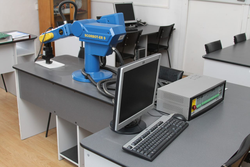
Duration of studies
4 semesters
Brief presentation of the program
Transversal skills
T1. Gathering and interpreting of relevant data in the field of intelligent systems electronics for their efficient identification and application in the design process.
T2. Selection, synthesis and comparative evaluation of theories, models, techniques and methods in various fields of electronics.
T3. Problem solving by integrating complex sources of in-depth information and related fields.
T4. Rapid development of optimal, application-oriented programs using various software packages.
T5. Demonstration of interdisciplinary communication skills, organization and management of teamwork.
T6. Critical, innovative and research skills, corroborated with the identification of one's own learning and training needs.
Aspects regarding professional practice
Specific competencies
A. Design.
SA1. Design and testing of analog, digital and hybrid integrated circuits.
SA2. Design of micro-electromechanical systems
SA3. Design of data converters.
SA4. Designing applications using microcontrollers plc, fpga
SA5. Design of mixed signal and shock systems
SA6. Design of software applications for communications and industrial electronics using intelligent technologies
B. Development
SB1. Programming of intelligent electronic systems
SB2. Development of software applications - tools specific to the development of applications in the field of applied electronics
SB3. Processing of complex signals (voice, data, text, images), with encryption, compression
C. Testing
SC1. Modeling, implementation, testing, use and maintenance: communication systems (radio, microwave, fiber optic), broadcasting and mobile communications networks, local and wide area networks for internet access
SC2. Development of software applications for communications, using web and multimedia technologies specific to the test activity
D. Project Management
SD1. Applied electronics project planning and management
SD2. Quality assurance tools and methods
SD3. Communications traffic engineering.
